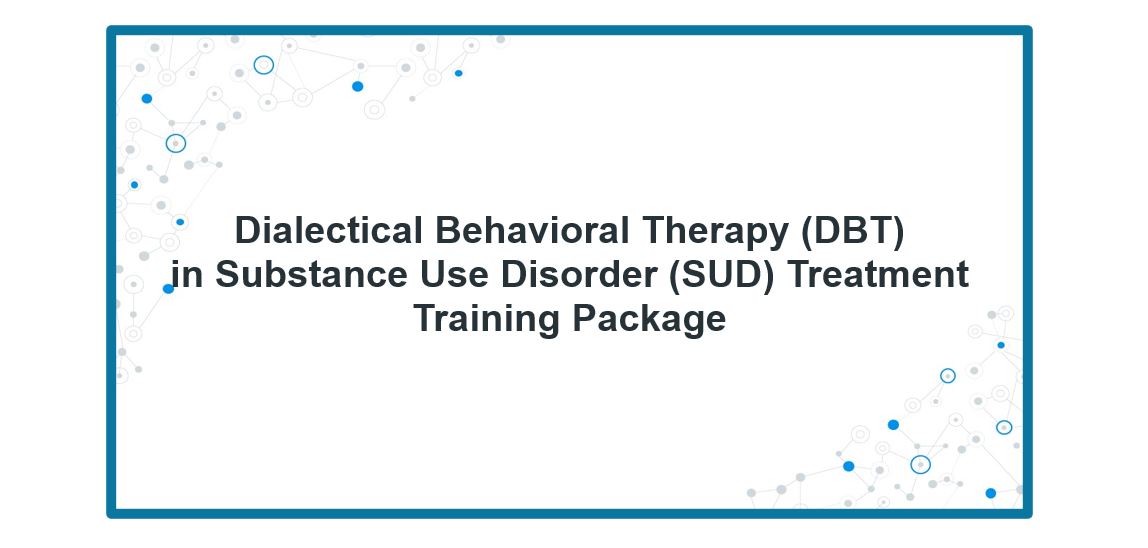
Dialectical Behavioral Therapy (DBT) has emerged as a powerful evidence-based approach to addressing the complexities of substance use disorders, offering a comprehensive toolkit that extends beyond conventional methods. In this six-hour training, participants will delve into the core principles and techniques of DBT, exploring how they enrich SUD treatment by fostering mindfulness, enhancing interpersonal skills, regulating emotions, and bolstering distress tolerance.
This training package includes a 6-hour PowerPoint presentation (full curriculum) and a 13-page handout packet. There are various options for presenting the 6 hours of content, including through a 1, 2, or 3-hour workshop, a single full-day (6-hour) training session, or two 3-hour sessions, which allows for convenient scheduling while maintaining satisfactory coverage of the material. All materials contained in this training package are 508 compliant.
Learning Objectives:
At the end of this training, participants will be able to:
In-Depth Description of Training: Originally developed to address chronic suicidal ideation and borderline personality disorder (BPD), DBT blends cognitive behavioral therapy (CBT) with a dialectical philosophy, emphasizing acceptance and change simultaneously. Over time, research has shown its effectiveness in treating a spectrum of mood disorders including depression, post-traumatic stress disorder (PTSD), eating disorders, and importantly, substance use disorders. This training explores how DBT goes beyond its original purpose, becoming a pivotal intervention in reshaping behavioral patterns and becoming a crucial tool in reshaping behaviors, particularly concerning substance misuse. Through this structured curriculum, participants will gain insights into the four core skill sets (modules) of DBT: Mindfulness, Interpersonal Effectiveness, Emotion Regulation, and Distress Tolerance.
Throughout this training, participants will examine the nuanced ways in which each skill set intertwines with SUD treatment, promoting a holistic approach toward recovery. Mindfulness, as the cornerstone of DBT, encourages individuals to embrace the present moment, detaching from harmful thought patterns and impulses. Interpersonal Effectiveness skills equip individuals with strategies for building healthy relationships, crucial in navigating support networks during recovery journeys. Emotion Regulation skills teach mechanisms for managing intense feelings, providing tools to modulate emotional responses without resorting to substance use, while distress tolerance skills empower individuals to withstand cravings and urge to use, fostering resilience in recovery.
Moreover, this training underscores the importance of DBT in addressing co-occurring mental health disorders, breaking down barriers to recovery, and promoting sustained abstinence from substances. By fostering engagement, trust, and collaboration, DBT sets the stage for long-term success, enabling individuals to reclaim agency over their lives and forge a path toward lasting wellness.
In summary, this six-hour training serves as a roadmap towards integrating DBT principles into SUD treatment, equipping participants with the knowledge and skills necessary to effect transformative change in the lives of those grappling with substance misuse.